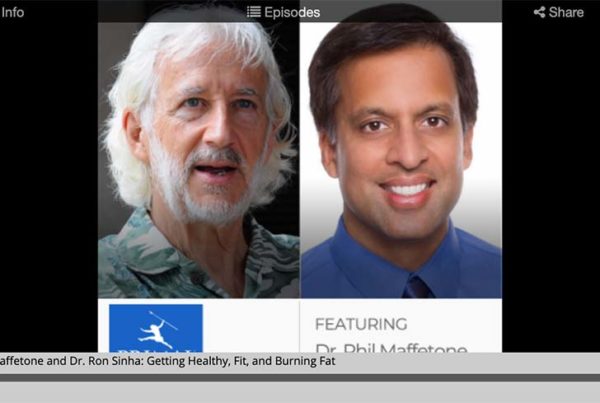
Five things you need to know before using artificial sweeteners whether they are “natural” or not. No. 1: None are natural.
Treating a symptom rather than the cause does not solve most problems, whether it’s drugs, foods or other habits. In the case of artificial sweeteners addressing a sweet tooth by substituting one bad thing for another may be especially harmful.
Two big questions surround the regular use of artificial, aka fake, nonnutritive, sweeteners, even the so-called natural ones: Do they work, and are they harmful?
The answers have been obvious for many years. They don’t help people lose weight and body fat — in fact, they can increase weight and body fat. In addition, they can harm your health in many ways.
…..
Five things you need to know about artificial sweeteners
- All artificial sweeteners are unnatural, and highly processed.
- They can cause weight gain and increased body fat.
- They can contribute to hypertension, high triglycerides, poor cholesterol, Type 2 diabetes and cardiovascular disease.
- Some people consume them without knowing it.
- They can maintain sugar addiction.
…..
The acceptance that excess sugar intake is the foremost cause of the overfat pandemic and contributing to the most common chronic diseases worldwide, is higher than ever. The old notions of increased fat consumption and physical inactivity have now taken a backseat to sugar.
While sugar intake has risen dramatically, so has consumption of artificial sweeteners. In the U.S., for example, over 40 percent of adults consume artificial sweeteners daily, with use around the world not dissimilar, including among children. Moreover, based on studies that measure these sweeteners in blood and urine, many people who claim they don’t use artificial sweeteners unknowingly consume them. Much of this is hidden in junk food, which itself is sometimes well disguised.
Yet, the FDA has approved the safety of artificial sweeteners when used in daily “moderation,” which in FDA terms means 23 packets of Splenda, Sweet One or Newtame, 45 packets of Sweet’N Low, or 75 packets of Equal. The Academy of Nutrition and Dietetics states that artificial sweeteners can help limit energy intake as a strategy to manage weight or blood glucose.
Meanwhile, other organizations, including the conservative American Heart Association, are increasingly against the regular use of artificial sweeteners. And for good reasons.
Artificial sweeteners have been strongly associated in studies with increases in weight and body fat, including increased waist circumference, along with hypertension, high triglycerides, low HDL (good) cholesterol, Type 2 diabetes and cardiovascular disease. And aspartame may increase the risk for leukemia, myeloma and lymphoma as well.
Through the years many studies on artificial sweeteners have shown conflicting results. But a new study published in the Canadian Medical Association Journal (2017) looked at the past research, showing that these products don’t work as intended, and raise the risk of becoming overfat and chronically ill.
The name game to watch out for is some manufacturers calling their sweeteners “natural” even though they are highly processed or refined, including many commonly used stevia products. Others are derived from naturally occurring substances — sucralose comes from sugar, for example — and these are called “natural” too.
Artificial sweeteners are synthetic sugar substitutes, sometimes made from naturally occurring substances like herbs or regular sugar, and are many times sweeter than regular sugar. Stimulating sweet taste may make the brain respond as if sugar is being consumed — reducing fat-burning and increasing fat storage.
Most foods that contain artificial sweeteners are junk foods (actually, the presence of an artificial sweetener makes any food a junk food). When using them at home, they are more often added to unhealthy recipes. Many people use them in coffee and tea, because the natural healthy bitterness of these beverages are not tolerated by those with a sweet tooth.
While it may seem logical that eating artificial sweeteners with zero calories will avoid the harm of regular sugar, it obviously doesn’t. Artificial sweeteners impair health beginning with taste. This sensation sparks brain and metabolic responses and no doubt other aspects yet to be discovered. When the brain tastes sweet, it influences metabolism to reduce fat-burning and store fat.
Since artificial sweeteners in particular are very sweet, many are 200-700 times sweeter and one popular brand is an astounding 20,000 times sweeter than sugar, smaller amounts of them may influence addiction, feeding the vicious cycle and maintaining the craving with even smaller amounts.
Sweet = Reward
Seeking out sweet taste is a common food reward for many people, and a powerful stimulant (which quickly wears off, having us seek more sweet reward). It’s not just mental or emotional. Studies on athletes show that sweet taste alone can even affect muscle function.
Sweet foods are rewarding, stimulating the brain’s reward pathways and, via learning and conditioning mechanisms, increasing the likelihood of seeking out more sugar, just like the incentive that draws people to drugs like alcohol, nicotine and cocaine. Studies show that those with higher body fat seek rewards more easily.








